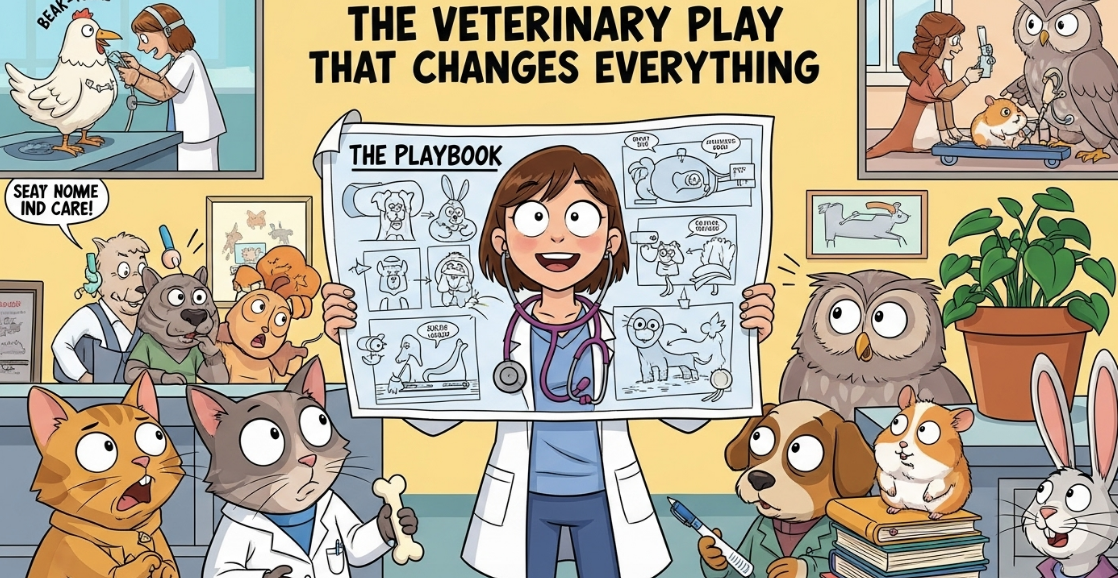CHWY
Look, you probably think of Chewy as just that company that delivers dog food to your door, maybe with the occasional handwritten note that makes you smile. But while you were busy spoiling your pets, Chewy quietly built something that’s making Wall Street analysts do double takes. Their 2024 numbers just dropped, and honestly? They’re the kind of numbers that make you reconsider everything you thought you knew about retail in the digital age.
The Numbers That Should Make You Pay Attention
Chewy just reported net sales of $11.86 billion for fiscal year 2024, representing 6.4% year-over-year growth. But here’s the kicker: their Q4 alone brought in $3.25 billion, a 15% increase year-over-year. That’s not just impressive for a pet company, that’s impressive for any retailer trying to grow in today’s economy.
Their Autoship program, which is basically pet parent subscription heaven, now represents 80.6% of Q4 sales, up from 76.4% the previous year. Think about that for a moment. Four out of five dollars Chewy makes comes from customers who’ve essentially said “just keep sending me stuff automatically.” That’s the kind of predictable revenue stream that makes CFOs weep with joy.
They added over 400,000 new customers in 2024, and their sales are projected to grow from $11.15 billion to $13.40 billion by 2027. These aren’t the numbers of a company selling pet toys. These are the numbers of a company that’s figured out how to turn pet love into a subscription economy goldmine.
What Chewy Actually Does (Beyond Delivering Kibble)
You probably think Chewy just sells pet food online, but that’s like saying Amazon just sells books. Sure, that’s how they started, but they’ve quietly built something much more ambitious. They’ve created what might be the most successful subscription business model you’ve never really thought about.
Their Autoship program isn’t just convenient delivery, it’s behavioral psychology meets supply chain excellence. When your dog needs food every month, and Chewy shows up like clockwork with exactly what you need, you stop thinking about shopping for pet supplies. It just happens, automatically, perfectly timed to your pet’s needs.
But here’s where it gets really interesting for you as someone who cares about business innovation: Chewy has created a customer experience so sticky that people don’t just buy from them, they become emotionally attached to the brand. How many companies can say their customers frame thank-you notes from customer service?
The Veterinary Play That Changes Everything
Chewy ended 2024 with eight new Chewy Vet Care Clinic openings and plans to open eight to ten more in fiscal 2025. This isn’t just expansion for expansion’s sake. Americans spend $40 billion annually on pet healthcare, and Chewy has a plan to capture a meaningful slice of that market.
Think about the strategy here. They already know when your pet needs food, what treats they like, and what health issues they might have based on your purchase history. Now they want to provide the veterinary care too. It’s vertical integration that makes perfect sense when you think about it from a pet parent’s perspective.
When your vet, your pharmacy, and your pet supply store are all the same company, managing your pet’s health becomes seamless. That’s not just convenient, that’s the kind of ecosystem play that creates long-term competitive advantages.
The Subscription Economy Masterclass
Chewy’s Autoship program generated $2.62 billion in Q4 alone, growing 21.2% year-over-year. That’s nearly $10.5 billion in annualized subscription revenue from a single program. To put that in perspective, many successful SaaS companies would kill for those kinds of subscription metrics.
What’s brilliant about their approach is how they’ve made subscription feel like a service rather than a commitment. You’re not locked into anything complicated, you’re just ensuring your pet never runs out of food. It’s subscription commerce that doesn’t feel like subscription commerce, which is probably why it works so well.
The predictability of this revenue stream allows Chewy to invest in customer experience, logistics, and expansion in ways that traditional retailers simply can’t match. When you know with high confidence what customers will spend next month, you can plan and invest differently.
Why This Should Change How You Think About Retail
Here’s something that should get your attention: Chewy’s gross margin improved to 29.2% in 2024, up from 28.4% in 2023. In an industry where everyone’s competing on price and margin compression is the norm, Chewy is actually expanding margins while growing revenue. That’s not luck, that’s a business model that creates real value.
Their sponsored ads business reached approximately 1% of net sales for the full year, creating a new revenue stream from the brands that want to reach Chewy’s customers. They’re essentially building their own advertising platform within their ecosystem, turning their customer relationships into monetizable assets.
When you can grow revenue, expand margins, and create new income streams simultaneously, you’re not just executing well, you’re operating in a different category from your competitors.
The Customer Experience That Actually Matters
Chewy has built something rare in retail: genuine emotional connection with customers. Their handwritten notes, memorial services for deceased pets, and customer service that goes above and beyond aren’t just nice touches, they’re strategic differentiators that create switching costs money can’t buy.
When your pet passes away and Chewy sends flowers, or when they remember your dog’s birthday, that’s not just customer service, that’s relationship building that makes price comparison irrelevant. Try explaining to your kid why you’re switching from the company that sent a condolence card when Fluffy died.
This emotional connection translates into customer loyalty that shows up in their financial results. When customers stick around longer and spend more per transaction, subscription businesses compound their growth in ways that traditional retailers can’t match.
What This Means for Your Investment Thinking
Even if you never plan to buy Chewy stock or start a pet retail business, their success teaches you something important about what works in modern commerce. They’ve proven that subscription models work outside of software, that emotional connection creates real competitive advantages, and that solving a specific problem really well can be more valuable than trying to be everything to everyone.
Chewy succeeded by focusing obsessively on pet parents and becoming indispensable to their daily routines. That’s a replicable strategy that works across industries, not just pet retail.
The Market Opportunity That’s Just Getting Started
The pet industry isn’t just growing, it’s evolving in ways that play perfectly to Chewy’s strengths. The COVID pet adoption boom created 23 million new pet households, and as those pets age, their healthcare needs increase. Chewy is positioning itself to capture revenue across the entire pet lifecycle, not just food and supplies.
Searches for cat harnesses increased 55% on their platform in 2024, showing that pet humanization isn’t just a trend, it’s a fundamental shift in how people relate to their animals. When 40% of Gen Z and Millennials travel with their pets, you’re not just selling pet supplies, you’re serving a lifestyle.
Why You Should Care (Even If You’re Not a Pet Person)
Look, you don’t have to own a pet or care about the animal industry to appreciate what Chewy has built. They’ve created a subscription business that generates billions in predictable revenue, expanded into high-margin services, and built customer loyalty that transcends price competition.
Their success proves that there are still opportunities to build dominant positions in seemingly mature markets by focusing on customer experience and solving real problems better than anyone else. That’s a lesson that applies whether you’re building a business, evaluating investments, or just trying to understand how successful companies actually work.
The pet industry might seem niche, but when it’s generating $40 billion in annual healthcare spending alone, and companies like Chewy are capturing increasing shares of that spend through superior customer experience, you’re looking at a case study in how to build lasting competitive advantages in the modern economy.
The Future That’s Already Happening
Chewy’s expansion into veterinary services represents more than just business diversification. They’re building an integrated ecosystem where pet care becomes as seamless as any other subscription service in your life. When your pet’s food, medications, preventive care, and emergency services all come from one place that knows your pet’s history and preferences, that’s not just convenient, that’s the future of specialized retail.
So even if you never use Chewy’s services or invest in their stock, you should appreciate what they’ve accomplished. They’ve turned pet love into a $12 billion business with subscription-like economics, emotional customer connections, and expansion opportunities that keep growing.
And based on their 2024 results, that business is just getting started.


